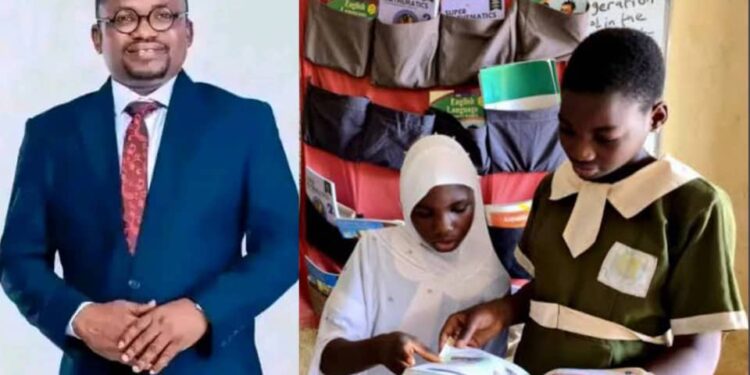The Oyo State House of Assembly has passed a motion urging the Executive Arm of Government to prohibit private and public schools from enforcing a policy of non-reusable textbooks.

The motion, sponsored by Hon. Babalola Biodun (Ibadan North-East 1), seeks to challenge and prohibit the exploitative practice due to its economic strain on families, environmental implications, and negative educational consequences.
According to the motion, the average Nigerian parent spends between N30,000 to N80,000 annually on textbooks alone in private and public schools on a child, while in some cases, especially in urban areas like Ibadan, that figure rises beyond N100,000.

The Motion says “A survey by the Education Rights Campaign (ERC) in South-West Nigeria revealed that 78% of parents in Oyo private and public schools feel “severely burdened” by mandatory new textbook policies, with 65% admitting to taking loans or delaying fee payments due to textbook costs.”


The motion also highlighted the environmental cost of this policy, noting that forcing families to discard perfectly usable books leads to significant paper waste and contributes to deforestation and waste accumulation.
“UNESCO’s 2021 report on sustainable education in West Africa states that reusing textbooks can reduce paper waste in schools by 45% annually.”

Furthermore, the motion maintained that this policy deepens educational inequality, as students whose parents cannot afford brand-new books are often left behind.

It added that policy appears to be driven more by profit than pedagogy, with some private schools partnering with publishers to enforce these rules for a commission or revenue.
The House in its resolves urged the Executive arm of Government to immediately issue a directive prohibiting private and public schools in the State from enforcing a policy that prohibits the reuse of textbooks.
It urged the State Government to collaborate with relevant stakeholders to develop comprehensive guidelines and regulations that promote the reuse of textbooks in private schools.
It was also resolved that all stakeholders must ensure that the policy prohibition is effectively implemented and monitored to prevent any adverse consequences.
The House Committee on Education was directed to monitor compliance with this resolution and report back to the House within four weeks.
The Speaker, Rt. Hon. Adebo Ogundoyin said the decision if well implemented is a significant step towards promoting sustainable education practices, reducing the financial burden on families, and ensuring that all students have access to quality education, regardless of their financial background.


You can get every of our news as soon as they drop on WhatsApp ...To get all news updates, Join our WhatsApp Group (Click Here)
















